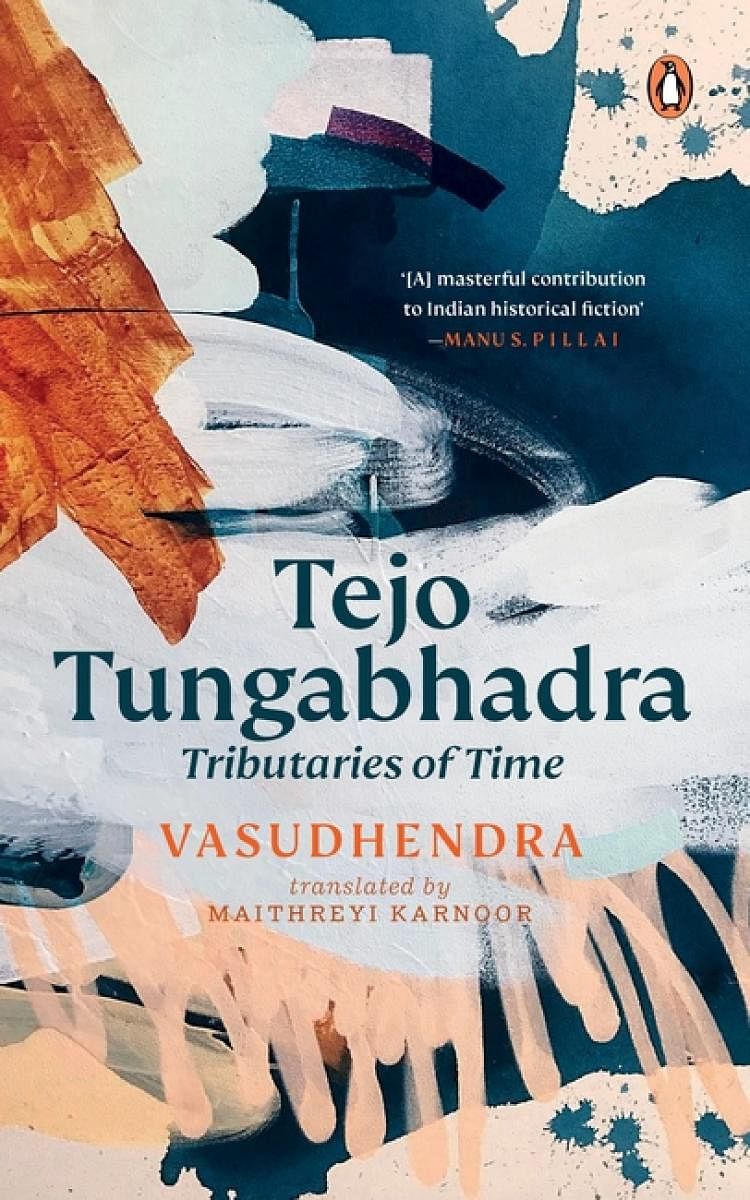

“No man ever steps in the same river twice, for it’s not the same river and he’s not the same man.” The Greek philosopher Heraclitus’ words (which I had mugged up long ago for an exam) kept ringing in my ears as I devoured Tejo Tungabhadra over the space of two nights.
The story begins on the banks of the river Tejo in Lisbon in the late 15th century and reaches the banks of Tungabhadra, the quiet witness to the rise of the Vijayanagara empire, its excesses and shortcomings. Caught between these two histories, rivers and destinies are two lovers as well as a host of seafarers, cheats and runaways, ordinary folks and extraordinary dreamers and a popular king desperate for progeny — all of whose stories are weaved in expertly to create a patchwork quilt of a tale that is both satisfying and gripping.
Having already heard a lot (both praise and criticism) about its author Vasudhendra as well as the original Kannada novel, which was a runaway hit when published, I had been more than eager for the English translation to come out. The wait, glad to report, was worth it. The novel has no pretensions about being anything other than what it claims to be — a work of historical fiction, sweeping in its scope, hyperbolic in style and emotional in its approach to its multiple characters, none of whom can be termed as the protagonist. Never mind the bouquets and the brickbats the original may have got, the translated version stands on sturdy legs and should be ideally read as a book in its own right — which is also naturally what the translator of the work Maithreyi Karnoor is advocating for.
A poet and an author herself, Maithreyi Karnoor has earlier translated a collection of plays by Kannada litterateur H S Shivaprakash as well as the acclaimed novel Halla Bantu Halla by Shrinivas Vaidya (published in English as A Handful of Sesame), which won the Kuvempu Bhasha Bharati Prize for Translation. Her debut novel, Sylvia: Distant Avuncular Ends, was published in 2021 and her poems were shortlisted for The Montreal International Poetry Prize in 2017 and 2020. Excerpts from an interview
As a translator what was your biggest challenge?
Translating Tejo Tungabhadra was quite a different experience from what I had done earlier in terms of language and context. Since this is a plot-driven story where language is secondary, so to say, it was easy to visualise. As a writer, I believe in understating and using as few words as possible. But Vasudhendra is lavish in his use of words and imagery and takes great pleasure in describing everything — and here was my challenge!
Did you find a balance? How much freedom does a translator really have?
No, I stuck to the original. That said, the editing process in Kannada publishing is not very tight unlike in English publishing houses. So while I have done a faithful (but critical) translation, I also had to wear my editor’s hat. I believe a translator ought to have the freedom to tailor the work according to the language it will be read in. This depends on the relationship between the author and the translator and the amount of trust they have developed in each other. Translating is not just retelling...it is a story taking on a new avatar and the final product is a fresh work by itself. Fortunately, Vasudhendra and I had great communication.
Why aren’t there more translations from Kannada to English?
I have also felt this lacuna keenly. I am only speculating but the reason is perhaps that you need someone in the big publishing houses, either a consultant or an editor, to really know what’s being written and read in a specific language to recommend its translation. Incidentally, Bengali (and perhaps Malayalam to a certain extent) seem to have greater access to English language publishing. That said, translation is quite in the news and works from other languages are also slowly gaining ground. Vasudhendra runs a successful publishing house himself and his books have run into multiple editions, it was difficult to not notice him!
What do you have to say about critics who have accused the author of promoting Brahminical hegemony and communalism in the novel?
The accusations did not bother me. I consider myself to be a critical person — I read the original Kannada novel and judged it for myself. What I notice nowadays is that in most political discourses and debates, not much discussion happens — there’s only labelling and name-calling. If you do not like someone or something, thrust a label on them and wash your hands off! If you look back at history, every religion has had its good and bad moments. Historical fiction cannot be written in easy binaries; a good novel is about nuance — a fact sadly lost on many.